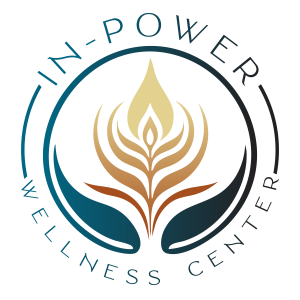-
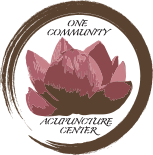 One Community
One Community
Acupuncture Center342 S Main St.
Unit 1 Lower Level
Bartlett, Illinois 60103(630) 837-4241 Hours
Mon3pm-7pmTue9am-1pmWed10am-1pm, 3pm-7pmFri10am-1pm, 3pm-7pmSat1pm-4pm
Follow Us!
- Sign up to receive news and updates and get my free report:“The Top 10 Reasons to Try Acupuncture”

-
Latest Articles:
- • Add These 10 Immune-Boosting Foods to Your Fall Diet •
- • Keep Your Skin Healthy and Glowing with these Fall Skincare Tips •
- • Beat End of Year Burnout with these Fall Self-Care Rituals •
Uncategorized
Liver’s Role in Tension Headaches Blogpost
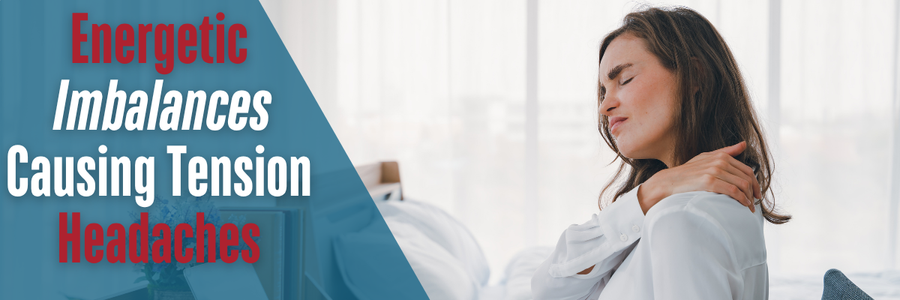
Beyond the Pain: Uncovering the Root Cause of Your Tension Headaches
It starts as a dull, persistent ache at the base of your skull. By midday, it feels like a tight band squeezing your temples. The pressure behind your eyes makes it hard to focus on your screen, and the tension in your shoulders has crept up to your ears, feeling like solid rock. You might even feel a bit dizzy or nauseous. You’ve tried stretching, drinking more water, and maybe popping a painkiller, but the relief is temporary at best. The headache always seems to come back, a constant, unwelcome companion to your busy, high-stress life.
If this sounds familiar, you’re not just imagining it, and you’re certainly not alone. But what if these recurring headaches aren’t just random events, but a clear signal from your body that something deeper is out of balance?
At In-Power Wellness Center, we view your body as an interconnected system. Using the wisdom of Traditional Chinese Medicine (TCM), we look beyond the symptom of pain to uncover and treat the root cause. For tension headaches, this often involves imbalances in the body’s Liver and Gallbladder organ systems.
The Three Common Culprits Behind Your Tension Headaches
In TCM, there isn’t a one-size-fits-all diagnosis. Your specific symptoms tell a story about the unique pattern of imbalance in your body. Here are three common patterns we see in patients with chronic tension headaches:
1. Deficiency of Liver Blood
Think of Liver Blood as the body’s ultimate nourishing and moistening agent for your muscles and sinews. When you’re under constant stress, your body consumes this precious resource. When Liver Blood is deficient, it can’t properly nourish the muscles around your neck and head.
- What it feels like: This leads to tense, tight muscles around the cervical area, traps, and temples. You might also experience a dull tension behind the eyes, blurry vision, or floaters. This is the classic “I hold all my stress in my neck and shoulders” headache.
2. Internal Wind Stirring Up
When a deficiency, like that of Liver Blood, persists for a long time, it can create an internal emptiness that allows “Wind” to stir up. This isn’t literal wind, but an energetic pattern that causes unpredictable and moving symptoms.
- What it feels like: This pattern often brings on symptoms like muscle twitching (especially around the eye), vertigo, dizziness, and even high blood pressure. The headache can feel like it’s moving or throbbing.
3. Damp-Heat in the Gallbladder
This pattern is often a consequence of long-term stress combined with a diet rich in greasy, processed foods, sugar, and stimulants like coffee and alcohol. This combination creates a “sludgy” internal environment where heat and metabolic waste (Dampness) get trapped.
- What it feels like: This results in severe, splitting headaches with a heavy feeling in the head, as if it’s wrapped in a wet towel. You might also experience nausea, a bitter taste in the mouth, and irritability.
Often, these patterns are a direct result of our modern lifestyle—the accumulation of stress over time and the over-consumption of stimulants that we use to push through it.
The Crossroads: Stagnation or Transformation?
Ignoring these signals and continuing to only manage the pain can allow these imbalances to become more entrenched. A simple deficiency might evolve into Internal Wind, or Damp-Heat could begin to affect other areas like your digestion or sleep. The headaches may become more frequent and severe, leading to a greater reliance on medication and a diminished quality of life.
But there is a path to transformation…
Imagine waking up with a clear head. Picture yourself moving through your day with relaxed shoulders and the ability to focus without that constant, dull pressure. This is what happens when we address the root cause. With acupuncture and TCM, we don’t just chase the pain; we work to nourish the Liver Blood, calm the Internal Wind, and clear the Damp-Heat. This process helps your body return to its natural state of balance, not only resolving the headaches but often leading to better sleep, improved mood, and a renewed sense of vitality.
Your First Step to Lasting Relief is Here
Ready to understand your body on a deeper level? We’ve created a comprehensive guide to help you start your journey.
Get your FREE “From Pain to Wellness” e-book in 3 simple steps:
- Visit this link: https://www.mindbodyinpower.com/from-pain-to-wellness
- Enter your first name and email address in the form provided.
- Check your email for your guide and take the first step toward understanding the root cause of your pain!
Ready to Feel Better Today?
Knowledge is the first step, but action creates change. If you are tired of letting headaches control your life and are ready to experience the profound relief that comes from addressing the root cause, we invite you to schedule your initial visit.
Book your initial consultation and treatment session at In-Power Wellness Center and start your journey to a pain-free life today.
The Powerful Health Benefits of Lymphatic Drainage Massage and Cupping
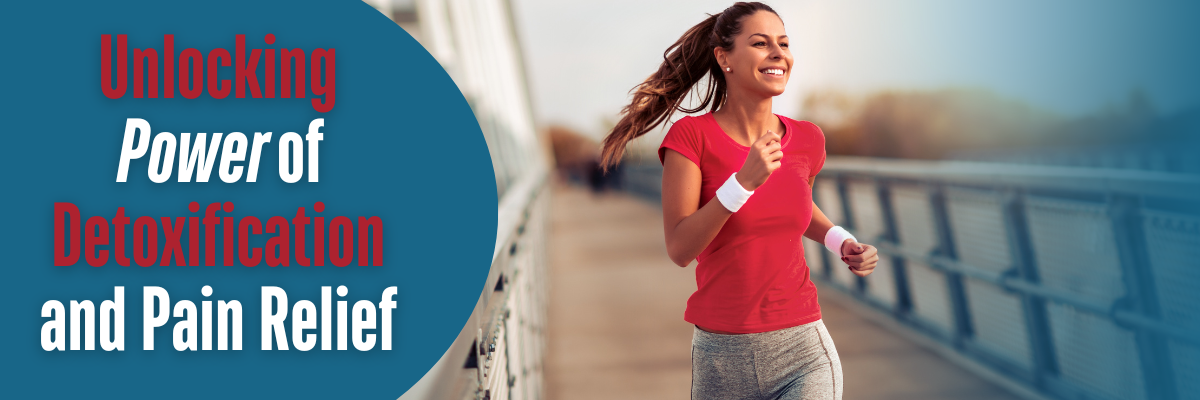
Unlocking the Power of Detoxification and Pain Relief
Many people view massage therapy as a luxury, a way to unwind from the stresses of daily life. But what if it could do more? What if it could help your body detoxify, reduce inflammation, improve skin health, and enhance your immune system? Lymphatic drainage massage and cupping therapy go beyond relaxation—they are powerful, natural tools that support deep healing and rejuvenation.
What is Lymphatic Drainage Massage and Why Is It Essential for Women?
The lymphatic system is your body’s natural detox powerhouse, responsible for clearing out toxins, excess fluids, and waste. Unlike the circulatory system, which has the heart to pump blood, the lymphatic system relies on movement and manual stimulation to function effectively. When it becomes sluggish due to stress, poor circulation, or inflammation, the body can experience:
- Water retention and swelling in the face, legs, and feet
- Chronic fatigue and sluggish metabolism
- Compromised immune function, leading to frequent colds and infections
- Dull, congested skin and increased breakouts
- Digestive discomfort and bloating
Lymphatic drainage massage is a gentle, rhythmic technique that encourages the natural movement of lymph fluids. By stimulating lymph nodes and pathways, this massage promotes detoxification, reduces swelling, and supports immune function.
Women, in particular, benefit immensely from this therapy. Hormonal fluctuations, pregnancy, and menopause can all impact fluid retention and toxin buildup. Lymphatic drainage helps the body restore balance, leaving you feeling lighter, healthier, and more energized.
How Cupping Therapy Enhances Lymphatic Flow and Relieves Chronic Pain
Cupping therapy is an ancient healing practice used in Traditional Chinese Medicine (TCM) to reduce pain, improve circulation, and release deep-seated toxins. It involves placing suction cups on the skin to create negative pressure, which helps to:
- Stimulate blood flow and lymphatic circulation
- Break up fascial adhesions and relieve muscle tension
- Detoxify the body by drawing out stagnation and toxins
- Reduce inflammation and chronic pain
Think of cupping as a vacuum cleaner for the lymphatic system—it pulls stagnant fluids and toxins to the surface, where the body can eliminate them more efficiently. The deep suction encourages fresh oxygenated blood to reach tight muscles and congested tissues, accelerating healing and reducing discomfort.
The Synergy of Lymphatic Drainage Massage, Cupping, and Acupuncture
When combined, lymphatic drainage massage, cupping therapy, and acupuncture create a powerful trio of healing. Together, they:
- Enhance lymphatic flow and detoxification
- Reduce swelling, water retention, and inflammation
- Improve skin elasticity, reducing puffiness and breakouts
- Boost immune system function, helping you fight off illness
- Ease chronic pain and tension, promoting deep relaxation
Acupuncture works by stimulating meridian points, balancing the body’s energy (Qi) and improving circulation. When combined with cupping and lymphatic drainage, the results are long-lasting and deeply transformative.
Who Can Benefit from These Therapies?
These treatments are ideal for individuals who experience:
- Stress and anxiety that lead to tension and sluggish circulation
- Fluid retention and bloating, especially around hormonal cycles
- Chronic inflammation and joint pain
- Sluggish metabolism and weight gain
- Post-surgical swelling or slow recovery from illness
- Low immunity, frequent infections, or slow healing wounds
Real-Life Transformations: Patients Who Have Found Relief
🌟 Mia, 42: “I struggled with bloating and fatigue for years. After just a few lymphatic drainage sessions, I felt lighter, more energized, and my digestion significantly improved. My skin even looks clearer!”
🌟 Lisa, 38: “Cupping has been a game-changer for my chronic back pain. The tension I carried for years melted away, and I finally feel relief I couldn’t get from medications.”
🌟 Anna, 50: “Menopause left me feeling swollen and sluggish. After incorporating lymphatic drainage and acupuncture, I feel balanced, refreshed, and more like myself again.”
Experience the Healing Power of Lymphatic Drainage and Cupping
With 24 years of experience in Traditional Chinese Medicine, I have helped countless patients restore balance, detoxify their bodies, and feel healthier and more vibrant. My colleague, Katherine Chow, LMT, has 11 years of expertise in lymphatic drainage massage, specializing in women’s health and holistic detoxification.
Let us help you reclaim your health and vitality. Download our Free Lymphatic Drainage Resource Guide and take the first step toward a healthier, more energized you.
Your body already knows how to heal—we’re here to support you on the journey.
How the Lymphatic System and Traditional Chinese Medicine Work Together

Are You Struggling with Unexplained Fatigue, Swelling, or Brain Fog?
You wake up feeling sluggish, your body feels heavy, your mind foggy, and no matter how much water you drink, your hands and feet still feel puffy. Maybe you’ve noticed that your skin is looking dull, or that minor aches and pains seem to linger longer than they used to. You might be dealing with bloating, digestive discomfort, or even feeling emotionally stuck—unmotivated, irritable, or anxious for no clear reason.
These are all signs that your lymphatic system may not be functioning optimally.
The lymphatic system is like your body’s natural detoxification and immune highway, clearing away waste, toxins, and excess fluids. But when it becomes sluggish, it can manifest in a variety of physical and emotional symptoms, including:
- Chronic fatigue and low energy
- Frequent colds, infections, or slow healing
- Brain fog, difficulty concentrating
- Digestive issues, bloating, or sluggish metabolism
- Puffiness or swelling in the face, hands, or feet
- Skin issues like acne, dullness, or puffiness
- Feeling emotionally stuck, anxious, or irritable
From a Traditional Chinese Medicine (TCM) perspective, these symptoms often arise due to Qi Deficiency, Qi Stagnation, or an accumulation of Dampness, all of which can impair the natural flow of energy and fluids in the body—just like a clogged drainage system in a house.
When Qi (Energy) Isn’t Flowing, Your Body Suffers
Imagine your body as a bustling city with a network of roads, rivers, and pathways that keep everything moving. Your Qi (vital energy) is the energy that fuels all the movement, including your lymphatic circulation. But when Qi is deficient or stagnant, things slow down—just like rush hour traffic causing congestion in the streets.
- Qi Deficiency: If your body lacks sufficient energy, it doesn’t have the strength to push fluids and waste through your lymphatic channels. This can make you feel exhausted, foggy, and prone to swelling and water retention.
- Qi Stagnation: Think of this as energetic traffic jams—your circulation slows down, and your body struggles to move lymph effectively, leading to bloating, tension, and emotional irritability.
- Dampness: This is like excess humidity in the air—your body holds onto too much fluid, leading to swelling, sluggish digestion, and even a sense of heaviness or depression.
If you’ve ever felt “stuck” physically, mentally, or emotionally, there’s a strong chance that your Qi and lymphatic system need support.
Unlock Vitality with Acupuncture, Cupping, and Lymphatic Drainage Massage
In TCM, when we restore the natural flow of Qi, we naturally improve the flow of lymphatic fluid as well. That’s where acupuncture, cupping, and lymphatic drainage massage work in perfect synergy to unblock stagnation, stimulate detoxification, and revitalize your energy.
- Acupuncture stimulates key points along energy meridians, helping to clear blockages, reduce inflammation, and boost circulation—enhancing your body’s ability to move and drain lymphatic fluid naturally.
- Cupping Therapy acts like a deep vacuum suction, pulling stagnant fluid and toxins to the surface where they can be efficiently cleared by your lymphatic system.
- Lymphatic Drainage Massage gently stimulates lymph flow, flushing out toxins, reducing swelling, and rebalancing fluid retention.
Combining these therapies provides a powerful, holistic detoxification experience, helping your body reset, recharge, and heal itself naturally.
Imagine Feeling Energized, Clear, and Light Again
Picture waking up feeling refreshed, energized, and mentally sharp. Your body feels lighter, more fluid, and vibrant—no more swelling, bloating, or sluggish digestion. Your skin radiates with a natural glow, and you finally feel emotionally balanced, free from that heavy, stagnant energy.
When we restore the lymphatic system and balance the energetic function of the internal organs through TCM, everything starts working in harmony again. Instead of feeling weighed down by fatigue, puffiness, and brain fog, you start to feel like yourself again—clear, healthy, and thriving.
This isn’t just about a quick fix. It’s about giving your body the tools to heal and function at its best, so you can enjoy life with more energy, vitality, and joy.
Let’s Take This Journey Together
With 24 years of experience as a Traditional Chinese Medicine practitioner, I have helped thousands of patients overcome stagnation, detoxify their systems, and reclaim their health. My colleague, Katherine Chow, LMT, has spent the last 11 years specializing in lymphatic drainage massage, helping women just like you experience true relief and transformation.
We are here to help you restore balance, detoxify your body, and feel vibrant again.
Download our Free Lymphatic Drainage Resource Guide and take the first step toward revitalizing your health today:
👉 Download Here
Your body already knows how to heal—it just needs the right support. We’re here to guide you every step of the way.
Winter Wellness with Acupuncture

Have you ever noticed how the stillness of winter invites deep reflection? According to Traditional Chinese Medicine (TCM), winter is more than just a season of chilly weather—it’s a time to nurture our inner selves and align with the Water Element. The Water Element governs our reserves of energy, vitality, and courage, making winter the perfect season to restore balance and build resilience. So, what does this mean for your health and well-being? Let’s dive into the wisdom of TCM and explore how you can flow through winter with vitality and grace.
❄️Winter is the season of rest, introspection, and renewal. In TCM, it’s associated with the Water Element, which governs the kidneys and bladder. These organs are considered the body’s foundation of energy (or “Qi”) and are crucial for long-term vitality and health.
When the Water Element is balanced, you feel strong, calm, and adaptable. But when it’s out of balance, you might experience fatigue, fear, lower back pain, or even seasonal depression. Fortunately, there are simple ways to align with the season and nurture your Water Element:
- Embrace Rest: Like nature slows down in winter, so should you. Prioritize quality sleep and take moments of stillness to recharge your energy.
- Warm Nourishment: Enjoy warm, hearty foods like soups, stews, and herbal teas. Incorporate kidney-supportive foods like black beans, walnuts, and seaweed into your meals.
- Stay Hydrated: Even in colder months, hydration is key. Warm water with a splash of lemon is a gentle way to keep your fluids balanced.
- Acupuncture: This is a powerful way to harmonize your Water Element and address any imbalances. Regular sessions can help you stay calm, resilient, and energized through the winter months.
Winter isn’t just about surviving the cold—it’s a season of deep self-care and preparation for the growth and activity of spring. By tuning into the wisdom of TCM, you can turn winter into a time of profound renewal.
Acupuncture for Migraines
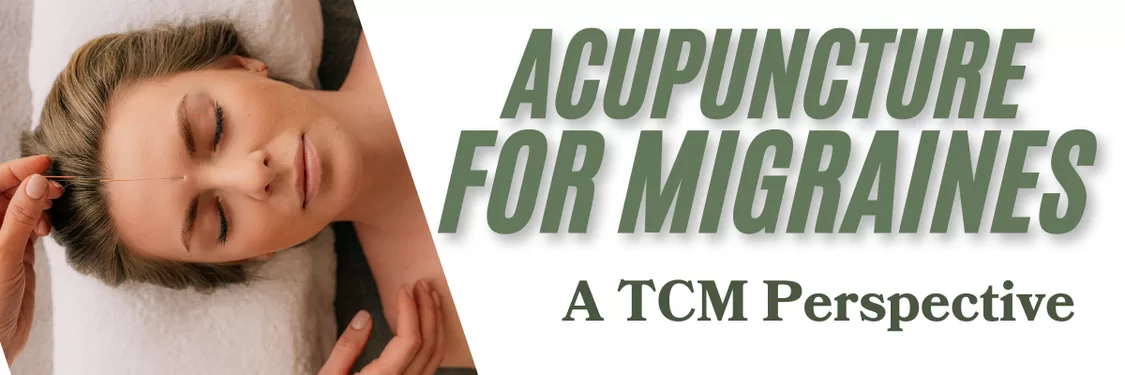
Migraines are one of the most challenging conditions I see in my practice. They often come uninvited, derailing your plans, your productivity, and your ability to simply enjoy life. If you’ve been struggling with migraines, you may have wondered if there’s a connection between your stress, your emotional state, and that relentless pain in your head. From a Traditional Chinese Medicine (TCM) perspective, the answer is a resounding yes.
The Link Between Emotions and Migraines
In TCM, we understand that emotions like frustration and anger don’t just affect your mood—they can affect your entire body. Extended periods of frustration can actually congest energy, or “Qi,” within your body, particularly in the Gallbladder and Liver network. This congestion is what we call “Liver Qi Stagnation.” Imagine a river that should be flowing freely, but instead has debris and obstacles clogging its path. Over time, this blockage builds pressure, and that pressure eventually manifests as pain—often in the form of migraines.
Many of my patients who experience migraines notice that their headaches often flare up during stressful times, or when they’ve been feeling particularly overwhelmed and frustrated. This isn’t a coincidence. The Liver network in TCM is responsible for keeping the flow of Qi smooth and free. When frustration builds up and stagnates, the energy rises, leading to the pounding, throbbing sensations we associate with migraines.
How Acupuncture Helps Relieve Migraines
This is where acupuncture can play a powerful role. By gently inserting fine needles into key points on the body, we help unblock the stagnant Qi, encouraging it to move freely once again. For migraines, we target points that influence the Liver and Gallbladder network, releasing both the physical tension and the emotional frustration that has built up over time. My patients often describe a profound sense of release—both from the pain and from the heaviness of emotional stress.
Addressing the Root Cause, Not Just the Symptoms
Unlike medications, which focus primarily on masking pain, acupuncture aims to treat the underlying imbalance that’s causing it. We’re not just suppressing the headache; we’re addressing the very root of the problem. Research supports what I’ve seen in my practice for years—acupuncture can significantly reduce both the severity and frequency of migraine attacks. Many of my patients have gone from feeling completely controlled by their migraines to finding a sense of freedom they hadn’t thought possible.
If you’re tired of feeling like migraines are stealing your life from you, I encourage you to consider acupuncture. Let’s work together to calm the storm, release the tension, and bring your body and mind back into balance.
Ready to find a real solution to your migraine pain? Relief is closer than you think.
